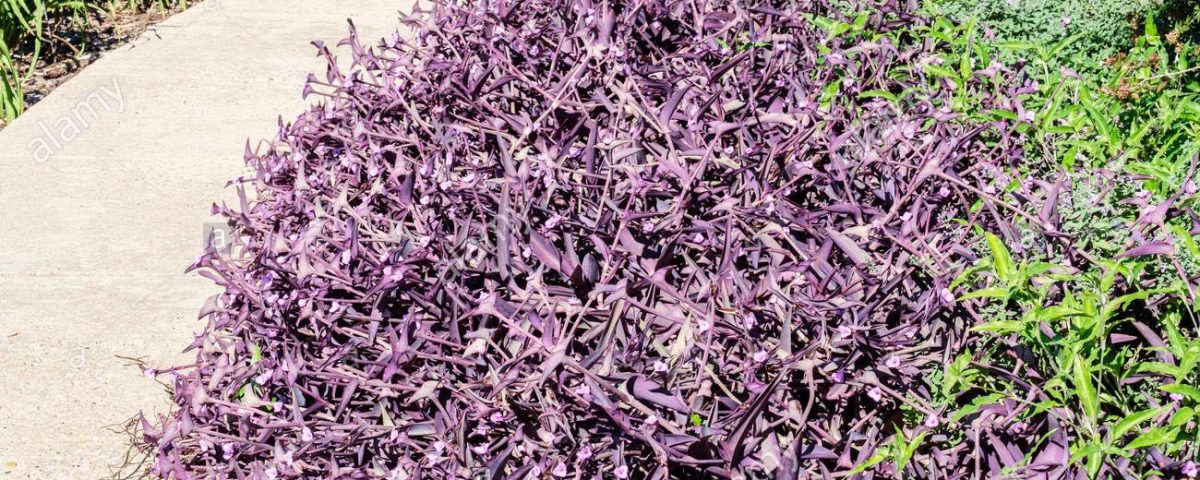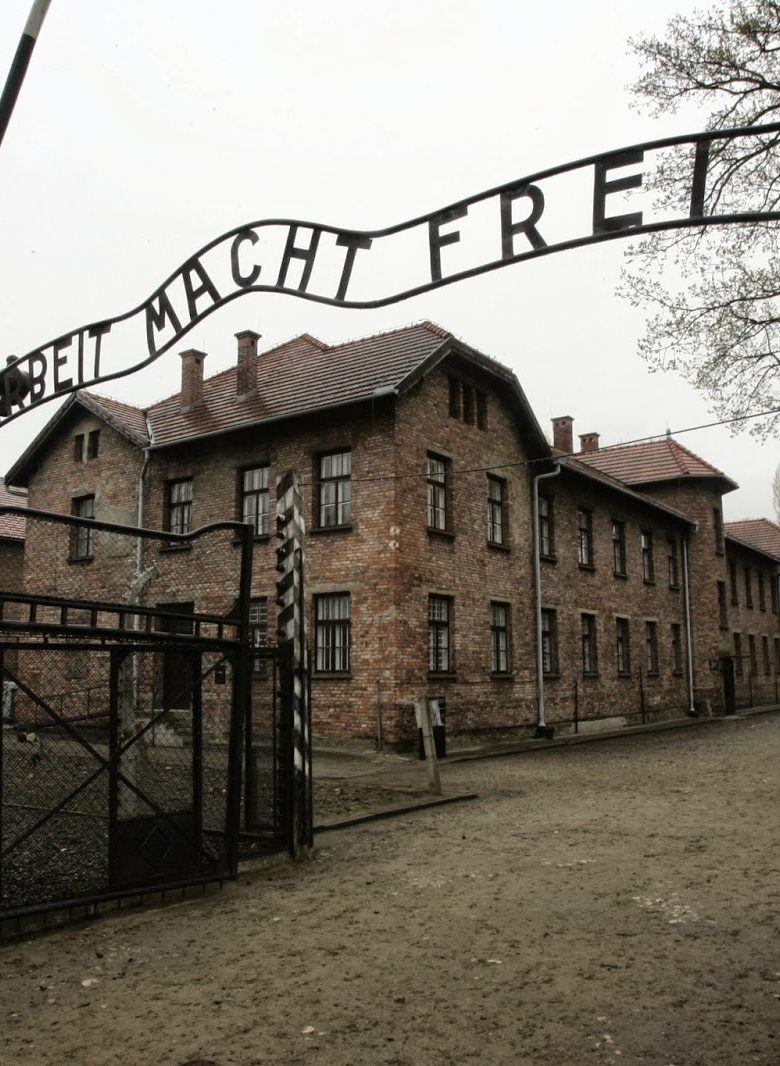
Taunting the Abyss
July 8, 2019
Against Irving
July 8, 2019
A legendary man said to have been condemned by Christ to wander the earth until the Second Coming. Or
A person who never settles down. Or
A rambly, scrambly perennial with striped leaves bathed in purple.
Some months ago, my daughter of eighteen left for Israel on a year-long contract with Hashomer Ha’tza’ir, a secular, Zionist-Socialist youth movement whose name translates as ‘The Young Guard.’ She was enrolled in a programme to work on a kibbutz, study, travel, and live the Zionist-Socialist dream — a phrase neither she nor her friends can utter any more without falling about the room and laughing.
By late June, her phone calls were filled with disillusionment, dismay and an urgent homesickness for that other sunburnt country which did not present her with moral dilemmas every time she paused to breathe. I decided to go there, even if just to hold her for a short time so that she might glean some comfort the way she once had when her dreams unaccountably turned to nightmares.
What follows is my story, not hers, though she does figure brightly in my tale. For the month that I travelled the country with and without my daughter, I was often in the company of my cousin, an officer in the regular army. Thus I experienced firsthand two very different viewpoints of the land, each of which were laden with personal agendas that seemed to possess an urgent validity.
I am not, nor have I ever been a political entity, but attempting to be apolitical in Israel is like trying to swim without getting wet. Thus I mention that yes, I was there when the treaty was signed between Prime Minister Rabin and King Hussein, Israel and Jordan. I watched both CNN and Israeli television’s coverage and could not escape the notion that I was watching two puppets — one smiling, the other sombre — as they contemplated how best they could assure their places in history. More interesting was riding on the Egged bus-line as the king steered his plane expertly over Tel Aviv, all the while chatting to the prime minister. As the event was loudly broadcast — all Israeli bus drivers turn up the volume when the news comes on — people grinned at one another. That ridiculous conversation — ‘How do you like our city?’ ‘It’s very beautiful, thank you.’ — seemed to sum up the inanity of all politicians’ aspirations to immortality. And yet, it was something more: a strange and absurd moment in the strange and absurd history of a region which should have, by now and by rights, imploded.
Instead of winter in July — always a cold, grey Melbourne affair — I find myself in Tel Aviv, on HaYarkon Street, sitting at an outdoor café. I have chosen it for its defiantly anti-tourist air of faded elegance. Decades ago it had hosted the esplanade’s most avant garde salons and, even now, its grunge is redeemed by the shimmering blue of the sea opposite. It is only 11.00 a.m. Neither the day’s heat nor the city’s pollution has reached its zenith. The air, the slender waitress who smiles and brings me soda gently, the music — hard rock and ballads from the sixties — almost make me believe I could live here if… Ah, but the ifs are endless, beginning with air-conditioning, ending with zeitgeist, with peace coming somewhere in between.
And how one craves the sight of a pale Polish or Hungarian Jewish face — Holocaust survivors all and a Melbourne specialty — among the olive skinned, fast-talking ones, in this deepest gene pool of Israelis which produces the most beautiful children. It is hard to believe that Jews can come in so many flavours and formations: Ashkenazim and Sephardim, Easteners or oriental Jews, northern Tel Aviv-niks; Mediterranean Jews; Ethiopians and Vietnamese .
Vietnamese? Really?
Really.
Israel gathered to its shores 300 Vietnamese, the first 66 of whom had been riding the waves on a leaky boat. They were ignored by big ships from East Germany, Norway, Japan and Panama, despite their panicked SOS signals. It was Captain Meir Tadmor, on the Israeli freighter the Yuvali who gathered them in. He saved them from certain death and oversaw their transfer to Israel.
That story makes me shiver, too redolent of boat-Jews seeking refuge from Nazi Germany. Turned away (an early version of ‘Turn Back the Boats’) by country after country, finally having to return to their country of origin; those who survived the journey died in concentration camps. Yet there is something oddly healing about the Vietnamese rescue: exiles finding unlikely refuge on the other side of the world.
The young Australians — my daughter and her Hashomer friends, with whom I will spend considerable time — call riding the public transport system, ‘Egged Surfing.’ It is an ironic salute to the difficulty of remaining upright, whether standing or sitting, on buses which bump and jolt their hapless passengers to wherever their destination might be. Thus, even something as simple as an inter-urban journey becomes a civilian metaphor, attesting to the difficulty of maintaining one’s equilibrium in Israel.
I cannot help but scan the faces of the religious men, the Orthodox — who swiftly avert their eyes from mine — searching for signs of softening and acceptance. Then there are the eyes of the glamorous and anorexic teenagers who whisper their urgent desire to escape the strange environment into which fate has tossed them. As always, my feelings are intense here but some things never change.
I still cannot help loving the young soldiers and the jaunty way they sling their rifles over their shoulders as they wander or stride through the Takhana Merkazit, the central bus station in Tel Aviv, making their way southward to Beersheba and from there to Gaza and God knows where. But now I too feel I can no longer utter words like the ‘Zionist-Socialist dream’ without embarrassment, guilt and deep regret for what the country is becoming.
Nonetheless, I feel I need this place to sparkle in the crazy, brutal universe, not because it is not as crazy and brutal as the rest of creation, but because how can I ever surrender the feeling that it is a land full of my brothers and sisters. I am aware that these siblings of mine may well look upon the Australian tourist with, at worst, contempt and, at best, the patronising tolerance they reserve for weakling Westerners who never held a rifle or wondered how not to cry as they contemplated sending their children to the army as soon as they completed high school. Still, I love their rude and defiant stance, their smart-arse worldview, their quick, harsh, yet often funny, judgement of outsiders.
My cousin Shmulik epitomises so many of the contradictions embodied in Israel’s struggle. While his chief concern is with survival, he and most of his fellow soldiers smoke heavily. And while it might be fair to say that most of his life is spent challenging forces that could destroy his country, it is equally true that virtually every nicotine-suffused breath he takes negates his struggle for survival. Breathing keeps him alive, yet it is slowly killing him.
At once family man and expert on border installations of radar equipment, he is that contradiction of a husband who can curl the soft brown hair on his wife’s neck in his fingers, kiss the eyelids and cheeks of his five sleeping children and then take up his Galil automatic and ram home its cartridge in preparation for his dawn drive through the territories. After thirty-six, forty-eight, sixty hours without sleep, he can come home and ask his wife what shopping she needs done or where he might take the children on an excursion this Shabbat. Yet, neither saint nor angel, he is capable of fearful anger, his tension releasing itself, sometimes in horror and hatred of his adversaries’ easy violence and contempt for life, and sometimes with disdain for the ineptitude of his superiors or the government’s blind injustices. He is the gentle soldier who hates violence and he is the brother I never had. His integrity and his pain torment me in yearning dreams of being able to gather him, and all those he loves, and sweep them to a plane where the threat of mutilation, death and the searing heat which ignites it all, is unknown.
Although the temperature is rising to its mid-afternoon crescendo, and the air becomes ever more visible as the number of cars increases on the road, it is still so peaceful as I sit here. I inhale the smoke of other people’s cigarettes to relieve my own, never-quite-subdued craving. In the background, James Taylor croons, while in the foreground, a woman in her fifties, hot, fat and angry, sweeps the footpath. I think she is Russian. Perhaps she was a musician back home, but in an Israel not always kind to immigrants, she is now condemned to street-sweeping. The richness of the fable I am trying to weave here is vanquished by the sight of her. I close my eyes in pity and frustration, but when I open them there are still little things to raise my spirits: like seeing the red Star of David on ambulances instead of the red crosses at home; reading the note in the tourist guide which says — as though it were an aberration — ‘Christian shops are closed on Sunday s,’ and finding myself in the only country in the world to consider poppy-seed-flavoured ice-cream a delicacy.
‘Who can work in weather like this?’ a taxi driver moans as he drops off one lot of tourists in this street of tourists and picks up another. The coffee drinkers grin in sympathy but I know what will happen. He will speed along HaYarkon, looking for the emptiest side-street that will lead him to Ben-Yehudah and onto Allenby. While he sees the ocean, a streaming shimmer to his right under the fierce blue sky, he will dream of playing shuttlecock on the sand which, from his vehicle, looks pristine, but is, upon closer observation, permeated with oil, rubbish and animal excrement. Even so, he will continue to eye it wistfully until he makes the left-hand turn that will remove him from the Mediterranean’s lure. Once in Bograshov or Gordon, he will see the businessmen clutching their briefcases, talking with great intensity to one another, enveloped in clouds of exhaust fumes, and it will be easy enough then to forget that the beach is only a street or two away. How swiftly the urge to the water and frivolity is forgotten in the polluted urban fervour.
Tel Aviv, Jaffa and Jerusalem, Haifa and even Akko are behind me now. My daughter and I have plunged into and pored over every market each city had to offer. We have argued politics in the cheapest and the best coffee houses and we are weary from daylong walking so we can feel we know each place, except for Old Jerusalem, which Shmulik forbade because of a too recent stabbing. He promised he would take me there later, a promise he honoured on a day iridescent with heat like all the other ones but somehow holy because of a letter I wrote to God on a tiny piece of paper, and posted in the Wall, all the while unsure of His presence on this bloodiest of sites.
Together with my daughter I have eaten fish by the old sea wall in Akko and wondered if the blood in my great, great grandchildren’s veins would ever mix with that in those dark, young bodies — were they Jew or Arab? — which seemed to deflect drifts of laughter and waves of shadow in equal proportion. With Shmulik I have kissed mezzuzot on the entrances and exits to Yad Vashem, the Holocaust memorial. I am unwillingly dazzled by the reflections of flames in mirrors that should have been shrouded in memory of the children, not ablaze with light. Yet this extravagance of fire commemorates the souls of murdered children with furious brightness, rather than darkness and apology, or at least I think that is what it attempts to do. In the end I am left with neither a sense of sanctification nor desecration. Perhaps that is the point: an accumulation of flames which became the inferno that consumed them all.
In Dakyar el Carmel, I sat in the cool, curtained spaciousness of a Druze family’s parlour and wondered why Israelis didn’t adopt such techniques of interior design which made the wide cushions on the cool stone floors a haven from the afternoon’s heat. The matriarch, assisted by several lively, pretty daughters, served us fresh figs and pears, a variety of nuts and countless tiny cups of potent, aromatic coffee before launching into a political analysis, both well-informed and well-intentioned, which explained the reasons behind Druze loyalty to all matters Israeli.
‘Now if she would only allow it,’ my daughter proposed later that night, unravelling her idea, ‘her children and mine (whenever I get around to having any) should be the ones to produce your grandchildren.’ But she grew quickly serious. ‘Think of what a combination we would make: how much braver, smarter, more resourceful we would all become if we combined our incredible strengths — genetic, cultural, moral. Then it wouldn’t only be Jews standing for Jews, but a fabulous new breed of people making this place safe for all of us.’
I was nearly swept up in her surge of Utopian reasoning before coming to myself and stating, ‘But there’d be no more ‘us.’ As expected, I received a look of frustrated pity for my refusal to evolve mentally beyond what she called the shtetl, those small, close-minded villages our grandparents hailed from.
‘No lectures about two thousand years of glorious bloodshed,’ she pleaded.
No lectures. Besides, for a brief Maccabean moment, the Six Day War, and the grand Entebbe rescue, I had never found any of the bloodshed glorious; but I was not as certain as she was about the things I was prepared to relinquish in a bid to achieve descendants who would be guaranteed peace and life.
And so, north to Afullah and beyond, into the hills of Galilee, to the kibbutz where she and eighteen other Melbourne-born ideologues were spending the second part of their Israeli experience. When I arrived I saw that common sense was already making inroads on ideology. These Australian students were fast learning that the best ideology could achieve was abandoning them to the laundry for six months, (it doesn’t matter where you work, it is all in the service of the kibbutz), while a little Australian knowhow, a little industrial-action, hoisted you out of there to work in the gardens and sunshine.
These young Melburnians, sheltered and cherished, had never lived away from home before. Somehow they were expected to know (to have learned by what mysterious process, I am still not sure) how to look after themselves and their lamentably dilapidated quarters without assistance or supervision of any kind. They were receptive to undertaking a massive clean-up of their premises, each one of them falling with high energy upon the disorder they had created .
For all their inexperience, I watched as they rose, not without protest but always on time, to be at work often before sunrise and put in anywhere between six and eight hours of arduous physical effort in soaring temperatures. They caused their Israeli liaison officers untold anguish with their very unideological conviction that the individual was ultimately more important than the group and, although they no longer viewed the socialist ideal with any illusions, they were nevertheless capable of spirited and erudite argument in favour of overhauling the worst of it, retaining the best of it, and forging something altogether more effective than the current system.
This young band of pioneers was no TV obsessed, fashion-following cadre. Collectively they were possessed of a formidable intellect, always reading, writing or debating, when they were nor indulging in their peculiarly beguiling notions of levity. They were a remarkably original lot and, in the five days I spent with them, I noticed them reading novels, treatises and polemics by authors ranging from Sholem Aleichem, J.D. Salinger, Gabriel Garcia Marquez and John Fowles to Karl Marx, Carl Sagan, Franz Kafka and Douglas Adams. Not a trashy romance or a violent adventure in sight. I left them with a great deal of regret, not a little envy and a strange aggregation of hope and pride. If we were making ’em like that, then surely the world had not gone entirely to hell.
In my final week, Shmulik threw caution to the hot winds and took us to Rafiah Yam, a tiny enclave of non-religious Jews in Gaza among whom he counted some of his closest friends. On the horizon I could see and smell the squalor of that other Gaza and I was beset by that moral ambiguity which, for most Israelis, has become a way of life. I felt, and still feel, unequal to the task of evaluating all that I saw. The houses and gardens of the Jews were cool and modern, clean and well cared for. Their quantities of children (most of the families had at least four) played raucously, safely, in the late afternoon sun while only the shortest distance away the road that linked them to the rest of Israel was guarded every few kilometres by two or three soldiers on lonely, hazardous vigil. The Galil lay ready to fire on my daughter’s lap and I watched Shmulik drive, one eye always on the rear vision mirror. In Gaza, he explained, different road rules applied. You drove with no seat-belts and with unlocked doors.
‘If the car starts to burn,’ he said, sliding effortlessly into English to make sure I understood, ‘you need to be able to get out fast.’
Only a day after my visit, a number of people were wounded and one killed in a Gaza ‘incident’ on that very road. Somehow, even in retrospect, I cannot feel fear, only an intense awareness of the beauty of the place that Israelis and Arabs alike desire.
On the border between Egypt and Gaza we spoke to Egyptian soldiers, swapping cigarettes and anecdotes fractured by our limited knowledge of each other’s language. Our eyes were caught by the bluest of oceans on the periphery of Sinai, but our urge to swim in it was restrained by many metres of coiled barbed wire.
As they sun began to set, Shmulik decided it was time to go home. On our way to bid a quick farewell to those at Rafiah Yam, before returning to territory safely within the Green Line, we spied a combined Palestinian-Israeli police convoy. Shmulik braked abruptly and called out to them that they should talk to me, that I was a writer from Australia who was interested in their work and was there anything in particular they would like to say to me. He motioned to me that it was quite safe to get out of the car and he, rifle still in hand, also stepped out to stand beside me. For one of the few moments in my life no words came. I am not sure whether it was the sight of the green, white and red flag rippling so close to the blue and white one, or my awareness of the proximity of so much weaponry or simply a sense of incredulity at my predicament.
On my behalf, Shmulik asked a number of questions and I heard the Palestinian’s slow, mellifluous Arabic translated into the policeman’s equally mellifluous though more staccato Hebrew. Yes, Arafat was a great man. Yes, peace was possible although there were still many problems to be solved… The flow of banalities seemed as endless as it was pointless until Shmulik’s eye was caught by the rifle of the Palestinian who had enough Hebrew to understand his comments of praise.
‘Not a Kalashnikov, though?’
The Palestinian shook his head. ‘No, but still very good.’
He held the weapon out towards Shmulik who, to leave his hands free, had to slide his own rifle into his car through the open window. My daughter gripped it firmly.
That is the image that rises both within my conscious and dreaming mind. In the staid days and freezing nights of Melbourne’s winter, again and yet again, I see the bloody sun dropping into the sea behind my cousin and the Palestinian, creating a halo around their dark heads. One of them holds out a rifle to the other who is about to take it, both of them momentarily disarmed.



